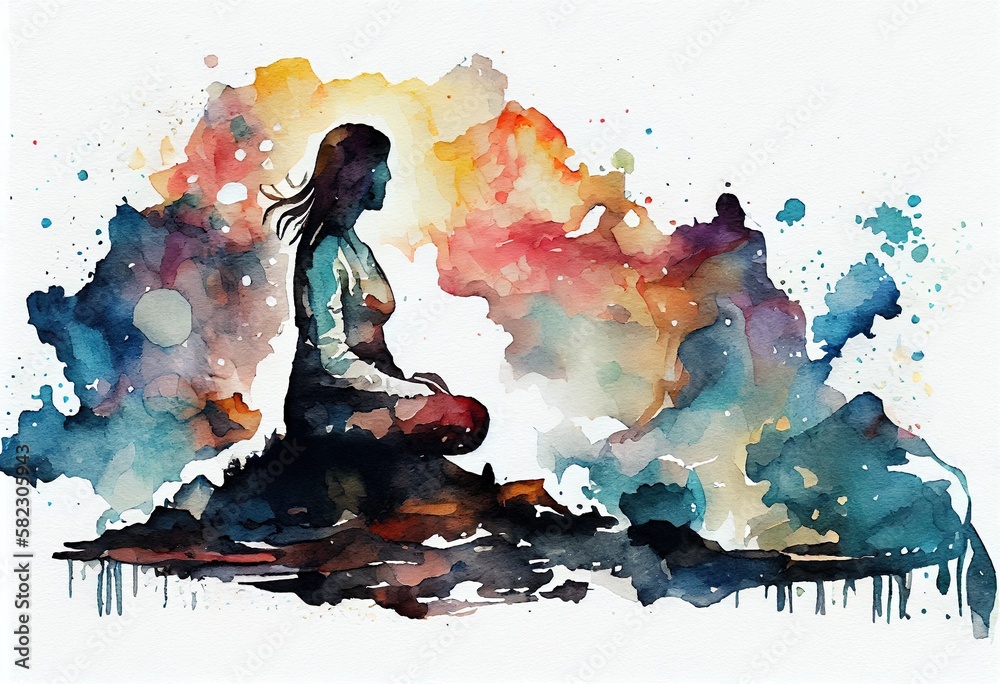
In the hustle and bustle of modern life, finding inner peace can feel like an elusive goal. However, one powerful tool that can lead us down the path to serenity is gratitude. This simple practice has the potential to transform our outlook on life, helping us navigate challenges with a calm and centered mind. In this article, we’ll explore the profound connection between gratitude and inner peace, and how incorporating gratitude into our daily lives can lead to a more fulfilling and harmonious existence.
The Gratitude-Inner Peace Connection
Gratitude, the practice of being grateful for what you have, is a simple yet powerful tool for living your best life. When practiced regularly, gratitude can help you feel happier, healthier and more fulfilled. Gratitude also strengthens your relationships with others and helps you to create a more meaningful life experience. However, this practice doesn’t come naturally to everyone. Many people struggle with finding things in their lives that they can be grateful for. But if you’re feeling stuck or just want some guidance on how to begin practicing gratitude on a regular basis, here are five tips that will help:
- Shift in Perspective. Gratitude encourages us to focus on the positive aspects of life, fostering a mindset that appreciates the abundance around us, even in challenging times.
- Reduced Negativity. By acknowledging and appreciating what we have, we shift our focus away from scarcity and negativity, leading to a more positive and peaceful state of mind.
- Increased Self-Awareness. Gratitude helps us see ourselves as part of something larger than ourselves — which makes it easier to connect with others and feel more connected to humanity.
- Stress Reduction. Gratitude has been shown to lower stress levels by promoting contentment with what we have, rather than dwelling on what we lack.
- Better Sleep Quality. Research shows that people who express gratitude have higher quality sleep than those who don’t express gratitude because they feel happier, less stressed and more relaxed after expressing gratitude regularly.
The Ripple Effect of Gratitude

Improved Relationships: Gratitude creates a ripple effect of well-being that can enhance our relationships, improve our health and even improve how we perform at work.
Expressing gratitude strengthens our connections with others, fostering a sense of mutual appreciation and trust that contributes significantly to inner peace. Gratitude also helps us appreciate what we have, which reduces the need for material possessions. In turn, this reduces anxiety about losing those things we don’t already have and increases contentment with what we do have.
When you’re grateful for what you have, you are more likely to be satisfied with your life overall — and that has a positive influence on your happiness level.
Less Comparison and Envy: Expressing gratitude strengthens our connections with others, fostering a sense of mutual appreciation and trust that contributes significantly to inner peace.
Gratitude helps us develop a deeper sense of compassion for others because it makes us more aware of their struggles and challenges. Gratitude helps us connect with our own humanity by appreciating what other people contribute to our lives — even if these contributions aren’t as obvious as a paycheck or material goods.
The Fulfillment Factor
Gratitude is the practice of appreciating and valuing what we have in life. In this sense, gratitude is not just a feeling; it’s an action. When we are grateful, we are actively recognizing and appreciating that which already exists in our lives.
Gratitude is an antidote to negative emotions such as resentment, jealousy, guilt, anger and sadness. When we focus on what we don’t have or what’s missing from our lives, our attention is drawn away from all the things we do have and can appreciate. By cultivating gratitude for all that’s good in your life, you will naturally be less likely to focus on things that are missing or could be better. Gratitude cultivates a deep sense of fulfillment and satisfaction with our lives, providing a strong foundation for inner peace.
Incorporating Gratitude into Daily Life:
Mindful Reflection

Mindfulness is a way of paying attention to the present moment, with a curious and accepting attitude. By being mindful, you can learn to accept your thoughts and feelings as they are, without judging them as good or bad.
Mindfulness is one of the most important practices on the path to spiritual fulfillment. It can be practiced at any time and in any place, whether you’re sitting down to eat dinner or doing the dishes. This practice will help you become more aware of your thoughts and feelings so that you can take control of them instead of letting them control you.
Mindfulness meditation is an exercise that trains your mind to focus on one thing for a period of time — usually between 5 minutes and 20 minutes. You can meditate anywhere and at any time by simply choosing a focus, such as your breath or an object around you like a candle flame or flower arrangement. As thoughts come into your head, you simply acknowledge them and let them pass away before bringing your attention back to your chosen focus again.
Expressing Gratitude to Others
Gratitude is an attitude of appreciation, which can be expressed by individuals or groups in response to a gift or when someone has been helpful. The person who receives the gratitude is usually said to deserve it.
Expressing gratitude involves expressing that you feel thankful and appreciative for something someone has done for you. Try not to take it for granted, but rather express your gratitude in a positive way. For example, “I’m grateful for all you do for us” is more effective than “You always do something wrong!”
It’s important to remember that gratitude isn’t just about saying “thank you.” It also includes things like recognizing how much others have done for you, showing them respect and kindness, expressing your appreciation verbally or nonverbally through gifts, compliments or words of encouragement. In other words, gratitude involves being aware of the good things others do — even if they aren’t necessarily expected — and showing them how much it means to you.
RUCHI RATHOR Founder & CEO
Payomatix Technologies Pvt. Ltd.
FOUNDER AND INVESTOR | PAYMENTS PROCESSING EXPERT | MERCHANT ACCOUNT SOLUTIONS | WHITE LABELLED PAYMENT GATEWAY | Dreamer, Creator, Achiever, Constantly Evolving
Website Ruchi Rathor: https://ruchirathor.com
Website Healing Heart https://thehealingheart.me/
Instagram https://www.instagram.com/ruchirathor/
LinkedIn https://www.linkedin.com/in/ruchirathor12/
Facebook https://www.facebook.com/ruchi.rathor.magnificient
Tumblr https://www.tumblr.com/blog/ruchirathor-thehealingheart
Medium https://medium.com/@ruchirathor_23436









